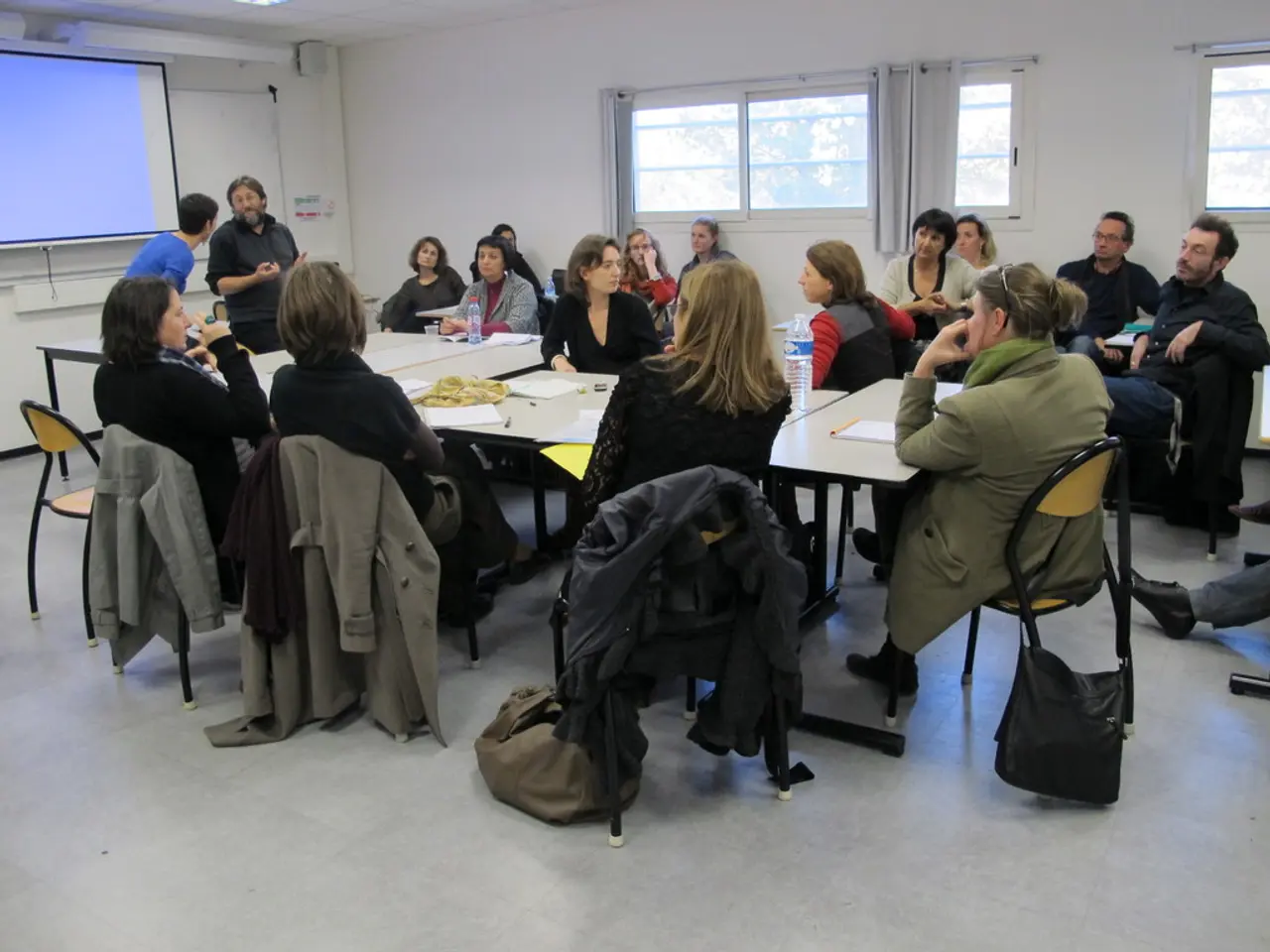Collaboration Significance, Benefits, Drawbacks: An Examination
Collaborate and Conquer: The Power of Teamwork at Work
Let's dive into the world of teamworking, where team members come together to create, innovate, and deliver extraordinary results. Teamwork is not just a buzzword; it's a potent method for boosting motivation and productivity in the workplace.
Why Teamwork Matters
Teamwork is a fantastic tool to combat the mundane routine of work, serving as a motivation booster that keeps boredom at bay. Gone are the days of repetitive, solitary tasks. Instead, teamwork empowers employees to collaborate, decide, and come up with innovative ways to tackle projects.
But teamwork does more than just make work less tedious. It promotes togetherness, creating an environment where everyone's goal is to succeed as a team, rather than being focused solely on individual achievements.
How Teamwork Does Its Magic
Teamwork is all about combining individual strengths and efforts to achieve a common goal. By working together, team members can break down complex projects into manageable, interconnected tasks that lead to collective success.
In a well-oiled team, everyone feels empowered and committed to their roles. When a project is executed successfully, it translates into increased job satisfaction, leading to even higher levels of motivation and productivity.
Teamwork's Secret Sauce for Success
- A Shared Vision: A clear and common goal that each team member is passionate about is essential for successful teamwork.
- Respect and Trust: Mutual respect and trust are the building blocks of a strong team. Each member should feel valued and supported by their teammates.
- Complementary Skills: A diverse team enables members to leverage each other's strengths and talents to find creative solutions to challenges.
- Open Communication: Constructive communication and active listening ensure that everyone's ideas are heard and acknowledged, promoting transparency and accountability.
- Ground Rules: Establishing clear expectations and ground rules creates a sense of order and promotes effective collaboration.
- Consensus: Achieving consensus through open dialogue and collaboration can lead to decisions that have the support of the entire team, ensuring commitment and accountability.
- Emotional Intelligence: Developing emotional intelligence helps team members navigate complex interpersonal dynamics, resolve conflicts, and maintain a positive working environment.
The Perks of Teamwork
- Synergy: The whole is greater than the sum of its parts. With teamwork, the collective output is often more significant than when team members work independently.
- Creativity: Diverse perspectives stimulate creativity and innovation, driving the development of better solutions.
- Enhanced Involvement: Teamwork provides employees with opportunities to engage in decision-making processes, fostering ownership and commitment.
- Swift Completion: Involving more people expedites the completion of projects, allowing teams to tackle complex tasks more efficiently.
- Stronger Interpersonal Relationships: Teamwork fosters bonds between team members, creating a supportive network that endures long after projects are completed.
- Cross-Training Opportunities: Teamwork serves as a platform for employees to learn from each other, fostering personal and professional development.
The Dark Side of Teamwork
- Interpersonal Conflict: Disagreements can lead to conflict, undermining teamwork and potentially derailing projects.
- Infectious Bad Habits: Negative behaviors can spread within a team, impacting productivity and morale.
- Overwhelming for Some: Not every employee thrives in a team setting. Some may find it challenging to stay focused when bombarded with interruptions and distractions.
- Inequalities in Skill Levels: Incompetent team members may struggle to contribute effectively, compromising the team's overall performance.
- Domination by a Few: Powerful personalities may dominate the team, stifling the contributions of quieter or less assertive team members.
- Time-Consuming: Building a successful team requires investment in team-building activities, communication, and collaboration, which can be time-intensive.
A well-functioning team fosters personal and professional growth, unlocking numerous career opportunities (careers) through cross-training and enhancing interpersonal relationships (business). Effective leadership in these teams harnesses individual strengths and skills to achieve a common objective (leadership), creating synergy that leads to increased productivity and exceptional results (finance). A team with a shared vision, mutual respect, complementary skills, open communication, ground rules, consensus, emotional intelligence, and strong decision-making capabilities is a force to be reckoned with in any business environment.




